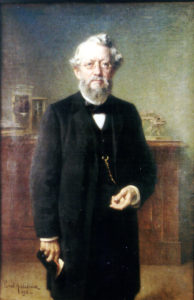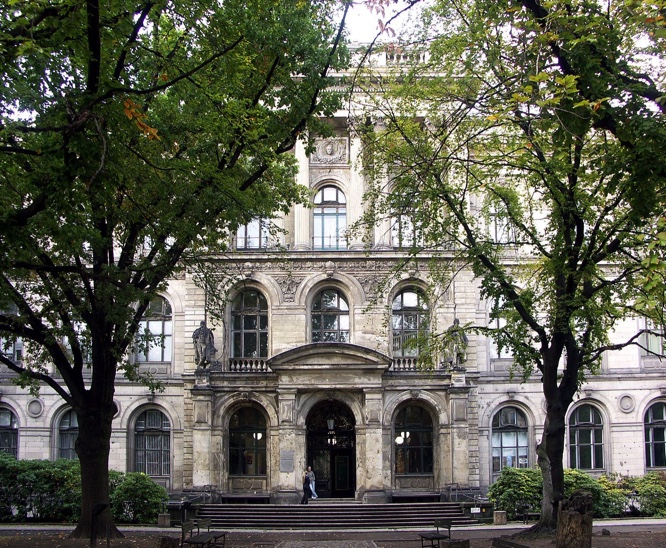The concept of biocenosis—that plants and animals live together in an interactive community—is central to the science of ecology, and, therefore, to conservation. Both the term and idea originated with the pioneering German zoologist, Karl August Mobius.

Mobius was born in the small Prussian town of Eilenburg, Germany, on February 7, 1825 (died 1908). He worked first as an elementary school teacher until his interest in natural history took him to the University of Berlin to study science. His skill as a scientist became obvious and soon he was appointed the first zoology professor at the University of Kiel and the director of the university’s Zoological Museum. He eventually became rector (i.e., president) of the university.
Because Kiel is an important fishing port, Mobius began studying oysters and oyster farming. He expanded his studies to marine biology generally and conducted research throughout the northern European coasts. He was intrigued by the voyages of the great German explorer Alexander von Humboldt , and followed his example with an expedition to Mauritius and the Seychelles during 1874-1875. He wrote a comprehensive review of the fauna of that area which became a standard text in marine biology.
His studies of corals and foraminiferans resulted in his discovery of symbiosis, the mutual interaction of two or more organisms living together. He went farther, however, developing the more general idea that organisms living in the same habitat all interact in various ways, a concept that we now call biocenosis. Those organisms comprise a community, a distinct level of biological complexity. For these concepts, Mobius is generally considered one of the pioneers of the science of ecology.

He was also a central figure in the development of public opportunities to experience nature. Along with his leadership of his university’s zoological museum, he co-founded the Hamburg Zoo in 1863 and led the design and creation of Germany’s first public aquarium. In 1887, he became the first director of the new Natural History Museum of Berlin.
References:
Eilenburg, Germany. Karl August Moebius (1825-1908). Available at: https://www.eilenburg.de/55/. Accessed February 5, 2018.
Encyclopedia Britannica. Karl August Mobius. Available at https://www.britannica.com/biography/Karl-August-Mobius. Accessed February 5, 2018.
